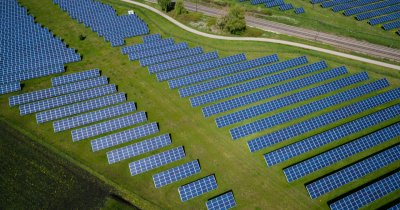According to Deutsche Welle, a German butcher shop, called Rügenwalder Mühle and which has been operated by a family for nearly 200 years, switched to plant-based alternatives for its meat products.
While people didn't think that this vegan alternative would replace meat-based products in a traditional butcher shop, Claudia Hauschild, a company representative, says that nowadays "meat-free nutrition is no longer a niche. It's part of mainstream society."
As consumers are willing to adopt more alternatives to animal protein, companies are looking to explore more options that would make these plant-based alternative more tasty and less distinguishable from their traditional counterparts.
The transition to vegan foods needs to happen quickly if we want to stop global warming, as consuming meat and dairy products would still contribute to warming the planet over 1.5 degrees Celsius, even if we stopped burning any kind of fossil fuel.
Tim Searchinger, an agricultural researcher at the environmental think tank World Resources Institute, said that "there's a strong need to moderate our demand for meat, milk — and above all, beef. If everybody on the planet ate as much meat as the average American, we'd need another planet."
Plant-based alternatives, the secret weapon to reduce emissions
BCG hopes that, by 2030, 8% of the food industry would be ensured by alternative proteins, which would reduce greenhouse gas emissions by as much as the shipping industry releases today.
Some experts, like Benjamin Morach, think that plant-based foods that replace animal proteins have a bigger impact compared to other green technologies, but they receive less attention from the public.
"We have here a winning technology [...] that just needs to be played very well now on the field", he said.
By adopting plant-based food alternatives, we can reduce methane emissions dramatically, which is one of the more dangerous types of gas.
It is able to heat the planet up by around 82 times more compared to carbon dioxide over two decades and it is responsible for half of the emissions coming from the farming sector.
BCG experts were able to determine that soy and pea-based meat alternatives can compete with the traditional food in texture and cost and fake meats made from fermenting proteins or lab cell-growth could reach their peak potential in a decade.
Still, despite all the technological advancements, Morach says that "the biggest barrier — to be brutally honest — is and will remain the consumer."
According to the BCG study, three-quarters of respondents say that a healthier diet is an important factor when it comes to purchasing plant-based alternatives.
55% of people included in the study are willing to adopt vegan alternatives for the environment and animal welfare, while the biggest set-backs in the consumption of alternative foods are nutrition, health and taste.
In order to reach an 8% market share of plant-based foods by 2030, an 84 billion euros investment would be necessary, which would help avoiding about 0.38 gigatons of greenhouse gas emissions.
 Mihai - Cristian Ioniță
Mihai - Cristian Ioniță












Any thoughts?